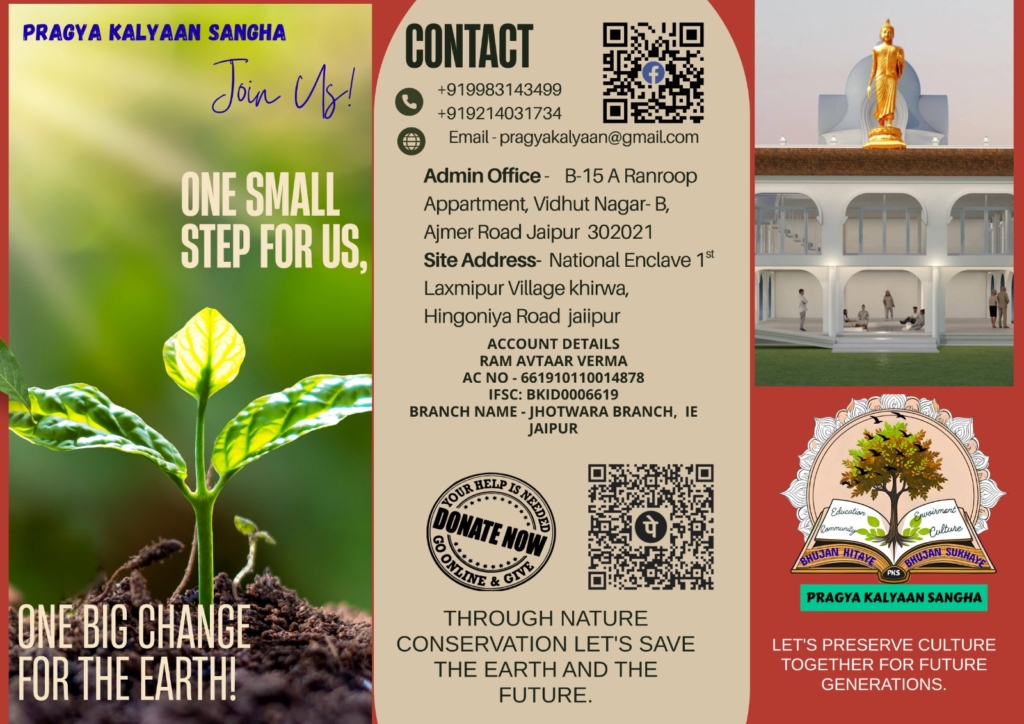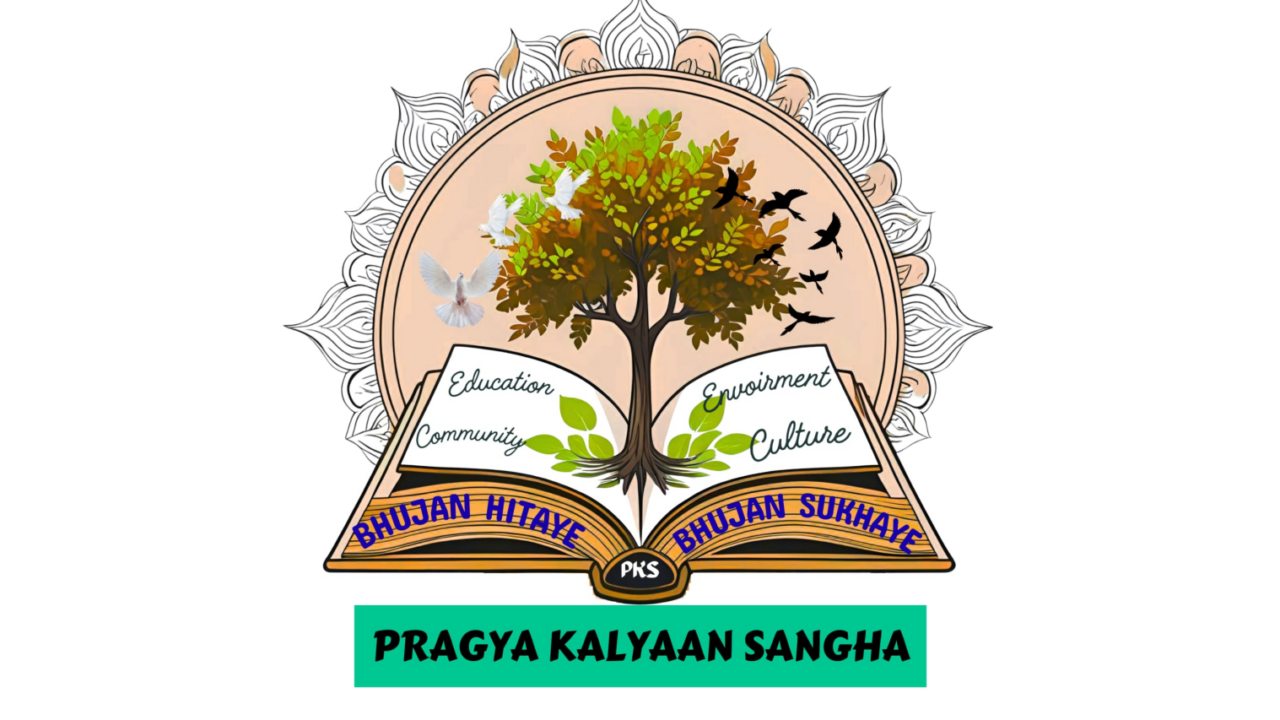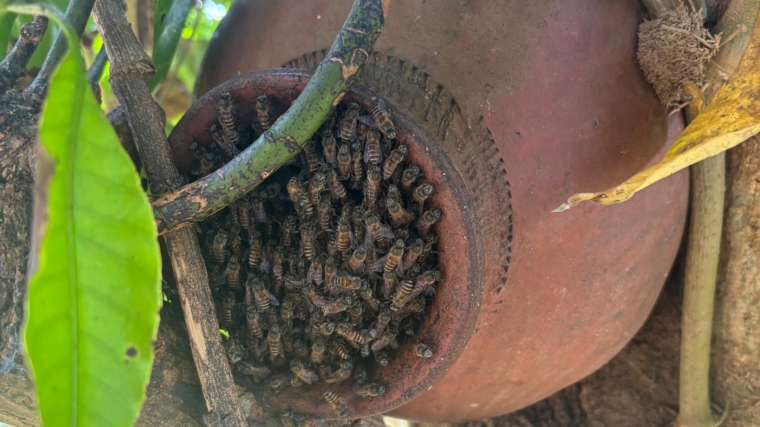Lifting People Up: The Impacts of Engaged Buddhism in Rajasthan
by Linus Dolfini
Bangkok, August 14, 2025
Pragya Kalyaan Sangha is an ongoing grassroots initiative, which is located in Jaipur, India. It is based on the principles of engaged Buddhism. Its founder, Mr. Pragaya Mittra, has worked with various communities throughout the past 30 years, to share Buddhist teachings and promote education, empowerment, and social change. His aim has been to uplift people by sharing Buddhist knowledge and re-introducing engaged Buddhism in their communities.
The beginnings of this engagement can be traced back to the 1990s. At that time, Pragaya Mittra was based in the state of Rajasthan, India as a government engineer. He recalls how, in 1992, after years of studying Buddhist scholars, he chose to convert from Hinduism to Buddhism. Following his conversion, he began to get more engaged in the community and started working with local villagers. He tried to share his knowledge with them, promoting education, and introducing them to the teachings of the Buddha and other Buddhist scholars.
Later in the 1990s, while still employed by the government, he was transferred to Udaipur – a city in Rajasthan – where he began to focus on working with underprivileged communities from lower castes, many of whom lived in the surrounding forests and rarely came to the city. Based on his knowledge of local government systems and programs, he began to support these communities by sharing information about available government assistance. His aim was to help improving their situation by showing them how to access public resources and support services.
Sharing knowledge and helping people to improve their lives seems to be personal for Pragaya Mittra. He explains that, before his own conversion to Buddhism, he spent a lot of time reading books by Dr. B.R. Ambedkar and learning about the Buddhist religion. Through this process, he experienced firsthand how powerful the impact of knowledge on someone’s life can be.
In 2000, Pragaya Mittra was transferred again – this time to Jaipur, which would later become the main center of this project. In Jaipur, he built connections with intellectuals and scholars who had some basic knowledge of Buddhism but did not really know how to interpret and implement Buddha’s teachings in their own lives. He began to work with them, educating them and sharing his own knowledge on Buddhism and how to apply it in an engaged way. One challenge he faced in Jaipur was that, while people were interested in learning more about Buddhism, they were reluctant to get engaged and practice the teachings. Encouraging deeper engagement amongst them turned out to be quite difficult. Often the family situation played a role. Some people had relatives from different religious backgrounds, which would lead to conflicts at home. Hence, people tried to avoid practicing their Buddhist faith too openly.
As a result, the engagement in Jaipur developed very slowly. For eight years, the team around Pragaya Mittra struggled due to limited resources. Rajesh a member of the Eco-Temple Network who has also been involved in the Jaipur project since 2010, describes the years before 2008 as “groundwork preparation”. After 2008, Pragaya Mittra started to build more connections with communities in other countries such as Malaysia, Myanmar, Sri Lanka, and Thailand. This helped the project gain momentum. Monks from these countries were invited to India to serve as teachers, visiting different villages and sharing their knowledge. A further challenge in the Indian context is that, even though it is the birthplace of Buddhism, many people are not familiar anymore with the religion or its teachings. In other countries, like Myanmar or Thailand, Buddhism is more widely practiced and well established. Having monks from said countries come to India to support the work of Pragaya Mittra and his team has been very beneficial.
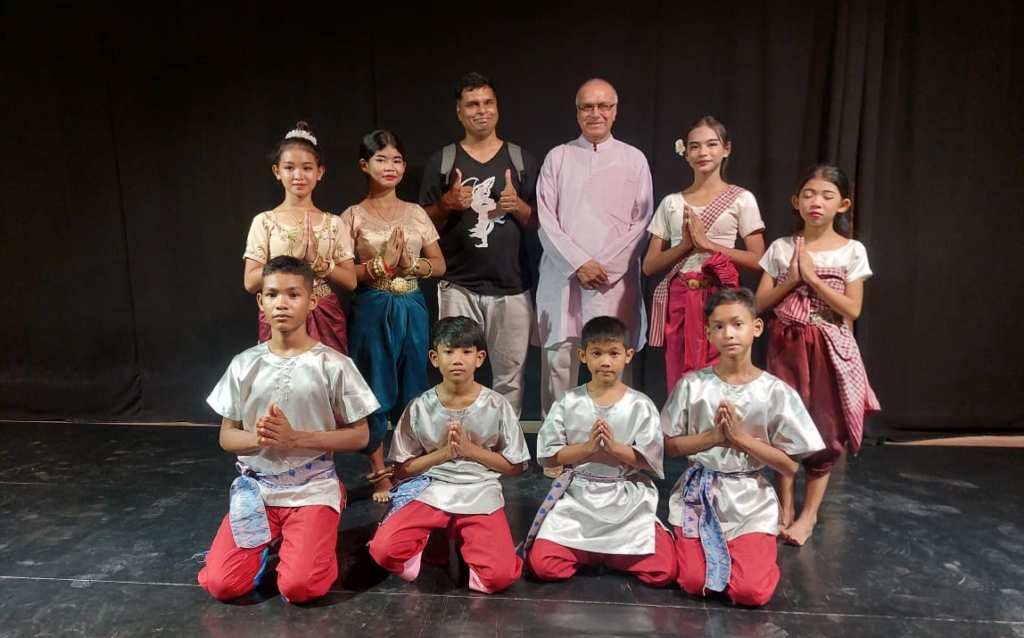
To strengthen the international exchange and facilitate more cross-cultural activities, Rajesh who joined the Jaipur project in 2010 traveled to Thailand in 2012 to work at the INEB Secretariat in Bangkok as an intern for one year. During that time, he learned more about engaged Buddhism and holistic education. Later on, he shared this knowledge with the communities back in India, which has had a strong impact on the Jaipur project and helped them to introduce new educational approaches. The connection with INEB deepened in 2013, when a conference was held in India. For both Pragaya Mittra and Rajesh, it has been clear that being part of the network was a valuable opportunity to connect with people from around the world.
Over the past ten years, the Jaipur project has done well in terms of networking, as well as sharing knowledge, and inviting people to take part. However, resources remain limited, and the team has not yet been able to establish a physical center in Jaipur to run their activities. As a result, they have been forced to run their project from people’s homes, visiting them and teaching them there. There have been two attempts to set up a center, but both had to be stopped due to legal issues that came up at the time. Especially, in 2018 this caused the project to lose a significant amount of funding, which they had already raised and invested in their planned learning center.
However, Rajesh states that they remain 100 percent committed. Since last year they have concrete plans to try once again to finally establish their learning center in Jaipur. This center will allow them to host people and provide them with the facilities needed to study. One organization that has supported them in this effort is the Rajasthan Buddha Mahasangha which Rajesh describes as their sister organization. They have helped Pragaya Mittra and his team with paperwork and legal procedures, as the Jaipur project members are not very familiar with this kind of work.
The educational approach of Pragya Kalyaan Sangha is based on the Pali concept of Bovoon. According to this concept, wherever there is an active Buddhist community, there should also be a school and a temple. If these institutions are in place and the community is engaged, people can live in a sustainable and self-sufficient way. The Jaipur project is guided by this way of thinking. Pragya Mittra mentions that, ideally in the future, their project will include a learning center, a temple, and even a small health care clinic. However, at the moment the project remains a grassroots movement and the funding is limited. Despite these challenges, Pragaya Mittra and his team continue to stay actively engaged. They keep up their work with underprivileged communities, whilst advocating for youth empowerment as well as women’s empowerment.
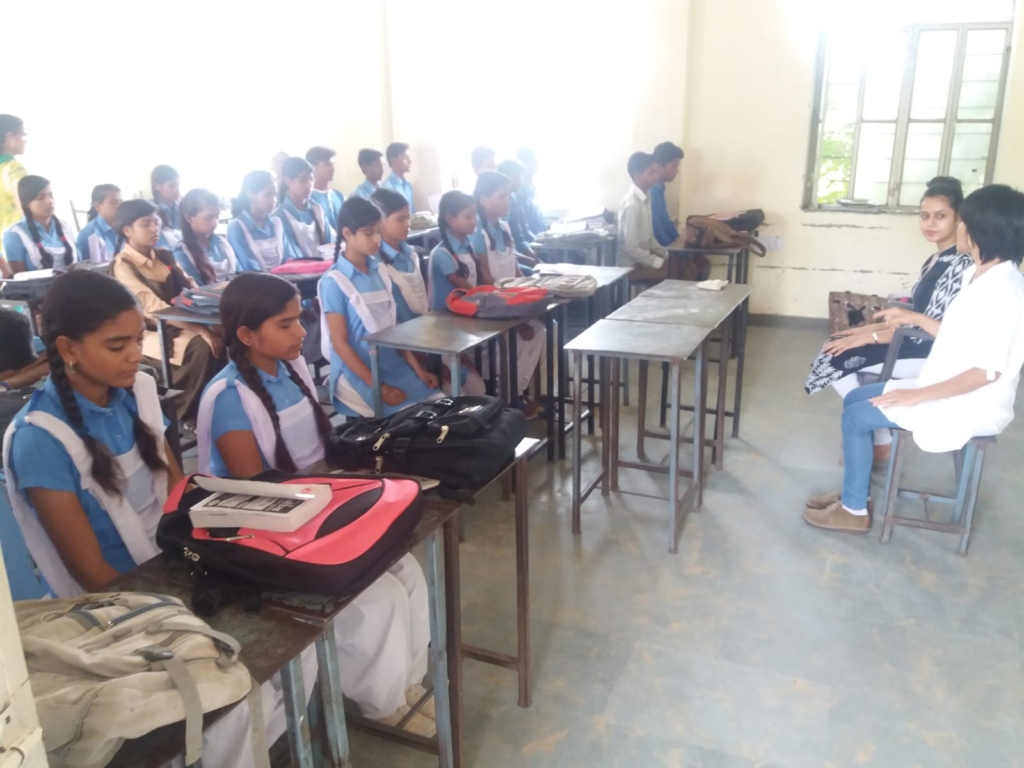
Intercultural exchange and learning are very important for Pragaya Mittra and his team. Through their contact with people from countries like Laos, Myanmar, Sri Lanka, and Thailand, certain aspects of Buddhism that have been forgotten in India are being reintroduced into society. One of the goals of the Jaipur project is to build a community that can help spread this rediscovered knowledge. They want to make sure that Buddhist teachings are preserved and passed on, and not forgotten again as they were previously. Rajesh mentions that he finds it very inspiring to see how, in countries like Myanmar and Thailand, Buddhism is not just seen as a religion, but as a way of life. He hopes that through this project, more Indians will also begin to apply Buddhist principles in different areas of their lives and in their communities.
When working as an engaged Buddhist on the ground, trying to improve the lives of people, it is crucial to understand the needs of the community you are working with. Buddhism can serve as a “guiding light”, but the teachings and practices must be used in the appropriate way. Through Buddhism we should try to uplift people. In India Buddhism is often seen as the religion of the poor and marginalized. However, that is not the case. Over the last 30 years, Pragaya Mittra has shown that through Buddhism knowledge can be shared, and based on that knowledge communities can be built, and people can be empowered. This way, people’s lives can be improved, and Buddhism can once again take an active and meaningful role in society.
Pragya Kalyaan Sangha is working to create a holistic society and to create some small but meaningful change in the world. Whoever wants to contribute to this change, is welcome to join the team as a volunteer, and share their knowledge and skills.
